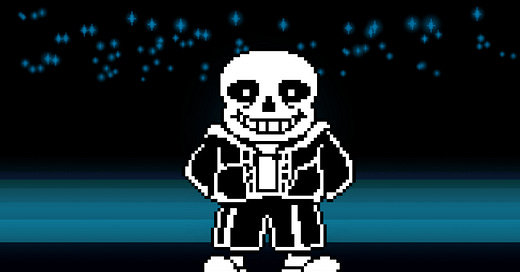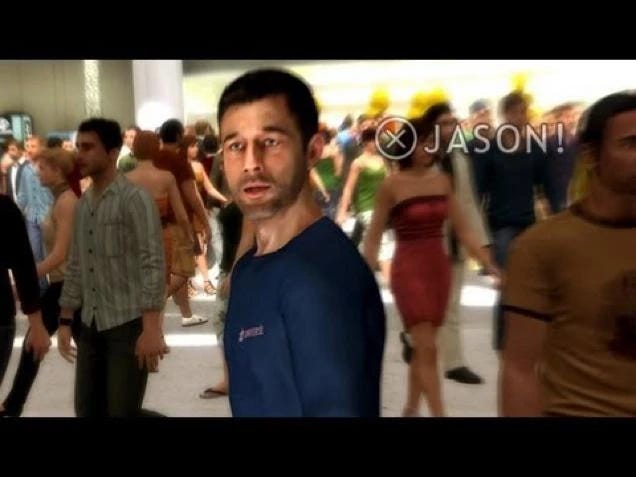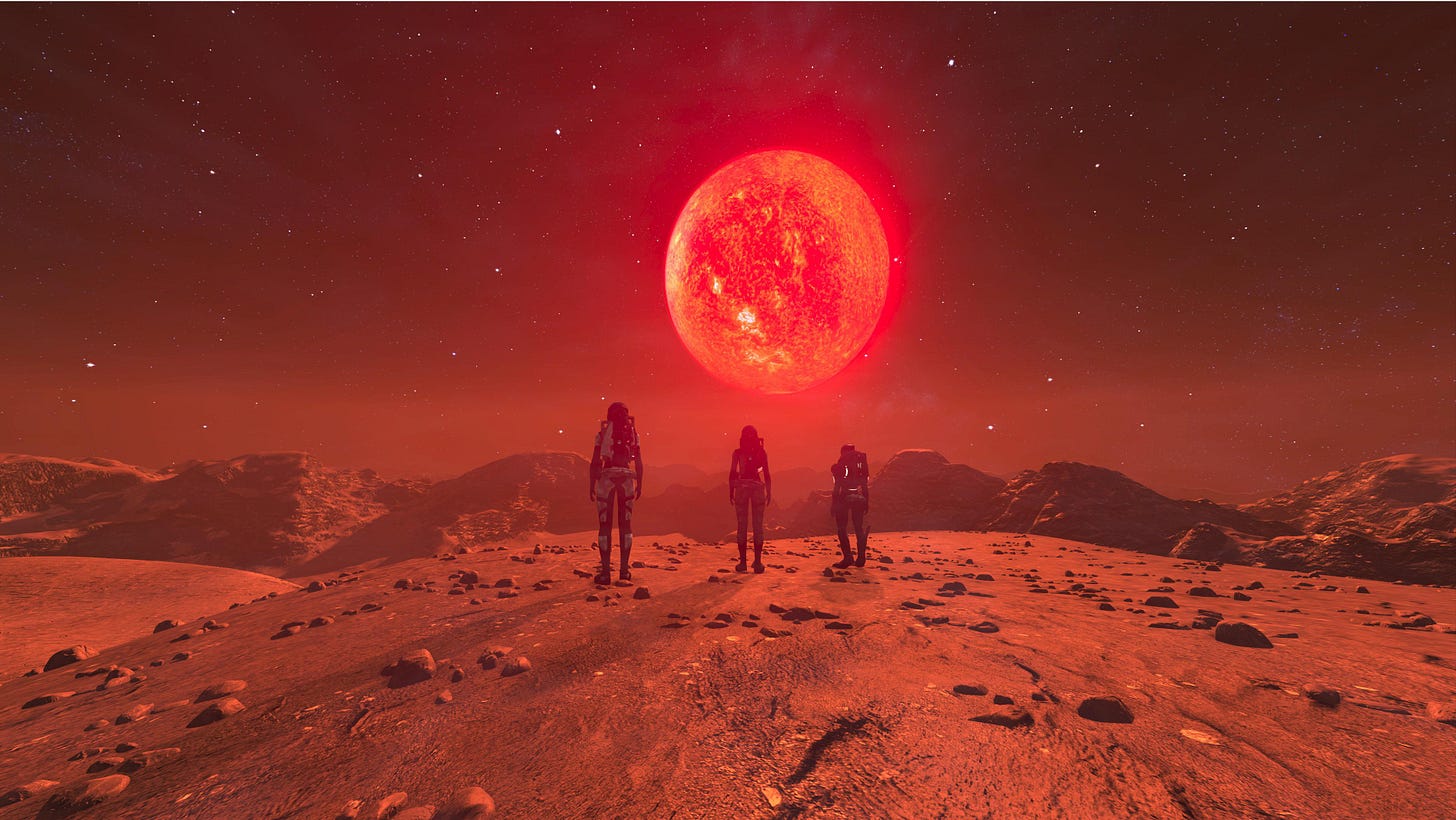Video Games Ushered In My Quarter-Life Crisis
Winners Don't Smoke, Snort, or Inject Games
July 9th, 2010. My 25th birthday.
For the past few days, I’d been holed up in our tiny Phoenix apartment, doing little but playing video games. The couch was my sanctuary, the TV my altar.
But this wasn’t how the week was supposed to go. I had taken time off work so my wife and I could go see my extended family in Texas. A 4th of July bash coupled with a family reunion in the dusty wasteland of Lubbock. Yeehaw!
Unfortunately, my health was giving me the business. Stomach problems, lightheadedness, severe acid reflux. All remnants of my gallbladder removal surgery from earlier in the year. When we made the trip plans and I got the time off work, I assumed I’d be feeling 100%. But I wasn’t. And instead of just working, I decided to stay at home and do… something. I had no plans. I just didn’t want to work.
So instead of doing anything worthwhile, I completed two games in a week: Heavy Rain for PS3, a self-indulgent movie game with terrible writing and unlikable characters; and Mass Effect for Xbox 360, a space RPG with satisfying galaxy exploration and amusing dialogue trees.
According to HowLongToBeat.com, Heavy Rain takes approximately 10 hours to complete the main game, not accounting for extras. Mass Effect takes about 18 hours, sans extras. Altogether, 28 hours. With Heavy Rain, I just played the story and nothing else, but with Mass Effect, I took my time. I traveled to planets that had no bearing on the main story. I took on sidequests that sounded interesting. I didn’t 100% complete the game by any means, but I took my time exploring the universe.
If I had to guess, I’d say I played between 35 and 40 hours of video games that week off work. And yes, that is a disgusting amount.
THE AFTERMATH
After I completed Mass Effect and it was time to return to work, a dark existential void overtook my being.
Video games were fun, but for reasons I couldn’t explain, they had consumed me whole. For a few days, my life became several hours of playing punctuated by bathroom and eating breaks. I didn’t feel addicted in the traditional sense, like I couldn’t stop playing them. I just… didn’t stop playing them.
At first I justified spending so many hours with a controller in my hand. Like, it’s my vacation, I’m not feeling 100%, what does it matter? I’ll do what I want.
But after the third or fourth day of staring at a screen and not going outside, inertia began weighing me down. Video games slowly became less of a joy and more of just a thing to do, the only thing to do. I could turn them off if I wanted, sure, but what else would fill my time?
I looked at my life and hated what I saw. My wife and I lived in Phoenix, a sprawling desert metropolis that shouldn’t exist. My low-paying office job involved lots of monotonous routine paperwork. I had just graduated from college the year prior with a creative writing degree, but I wasn’t writing. Recovery from my surgery and illness was taking months longer than I expected.
To sum life up, I was 25 years old, and I hadn’t accomplished anything. I hadn’t finished the novel I’d been working on for years. I hadn’t been writing, period. My goal was to become a published author, to make money working with words, but I let laziness and illness get the best of me.
After my vacation week was over and my wrestling with life was getting me nowhere, I prayed and meditated about what to do.
The answer eventually came: take three months off of video games, and work on writing when I could. Essentially, temporarily eliminate the issue that caused me grief, and focus on that which I supposedly desired.
Three months without video games was beautiful. I read more books, had more wonderful conversations with my wife, watched the entirety of “Twin Peaks” for some reason. By the time the three months was over, I wondered whether I wanted to play games at all anymore. 90 days might not sound like a long time, but it’s enough to make you forget why you ever cared about something.
I did step slowly back into playing games. An hour here and there, but little more. I didn’t play every day. Life felt healthier. But I still wasn’t writing, at least not in any significant way.
Sometime after my gaming hiatus ended, a thought occurred. Why not write about video games? Not new ones, no, enough people were writing about those. Write about the older games, the games of my youth. Maybe I could play every NES game and scribble any random gibberish that comes to mind about them. This wouldn’t be my main writing endeavor, of course. Just something to get back into the craft on a regular basis.
MOVING FORWARD
And thus my first blog Questicle or “The Quest to Review Every NES Game” was born.
For over three years, I played and wrote about every single NES game, all 750+ of them. My reviews were short, squirrelly, and often filled with errors (did you know the Internet will let you know you’re a terrible person for not knowing everything about a game?).
The quality and length of the reviews weren’t the point, at least not to me. I was writing every day, and that gave me purpose at a time when I desperately needed it.
Thankfully, my quarter-life crisis didn’t last long. A few months at most. But I’m glad I went through it. It showed me that human beings need something to focus on, to look forward to, to care about. All the time, not just here and there. “Where there is no vision, the people perish…” (Proverbs 29:18).
Sounds obvious, perhaps, but we’re a lot more oblivious than we realize in our twenties.
Outside of a couple special occasions, I have never played games for more than a couple hours at a time in one sitting ever again, and I doubt I ever will.
Video games are a wonderful pastime and a terrible way to escape your current reality.
*images courtesy of Heavy Rain Wiki, Reddit, and Pocket Tactics







Oh boy, can I relate.
As a kid, there was never enough time to play games, and I had so much fun with them. Of course, all my best times and memories playing games were with friends growing up. I was an only child but had a few friends that were basically brothers to me, lived close by, and I saw them constantly. This is partly why as a father, I maintain a rule about playing games together and not alone in my household. As a kid, it was pretty rare that I had both the opportunity and desire to play games in huge sessions by myself. When I did, it usually involved sneaking up past my bedtime after a big release, or in the days after Christmas.
But working my first job after college, living alone, I was suddenly alone a LOT. And games just became a draining time-suck that brought me no joy or happiness or fun. I think this is partly about getting older, but also partly about the underappreciated factor of playing games around other people.
Of course, I tend to think games these days are less conducive to that as well. No one wants to watch hour 15 of your Mass Effect playthrough unless they're a hardcore Mass Effect fan. 8-bit and 16-bit games were easier to jump into as a spectator. We would play JRPGs around and with each other back in the day, which in theory might be harder to spectate, but it helped that we were all fans of the same limited pool of Square RPGs and didn't play any non-Square RPGs. We also used the oft-forgotten 2-player mode in FF6 a lot. One of my friends was a dedicated Sabin player because he never messed up the Blitzes.
“Jason! Jason!”